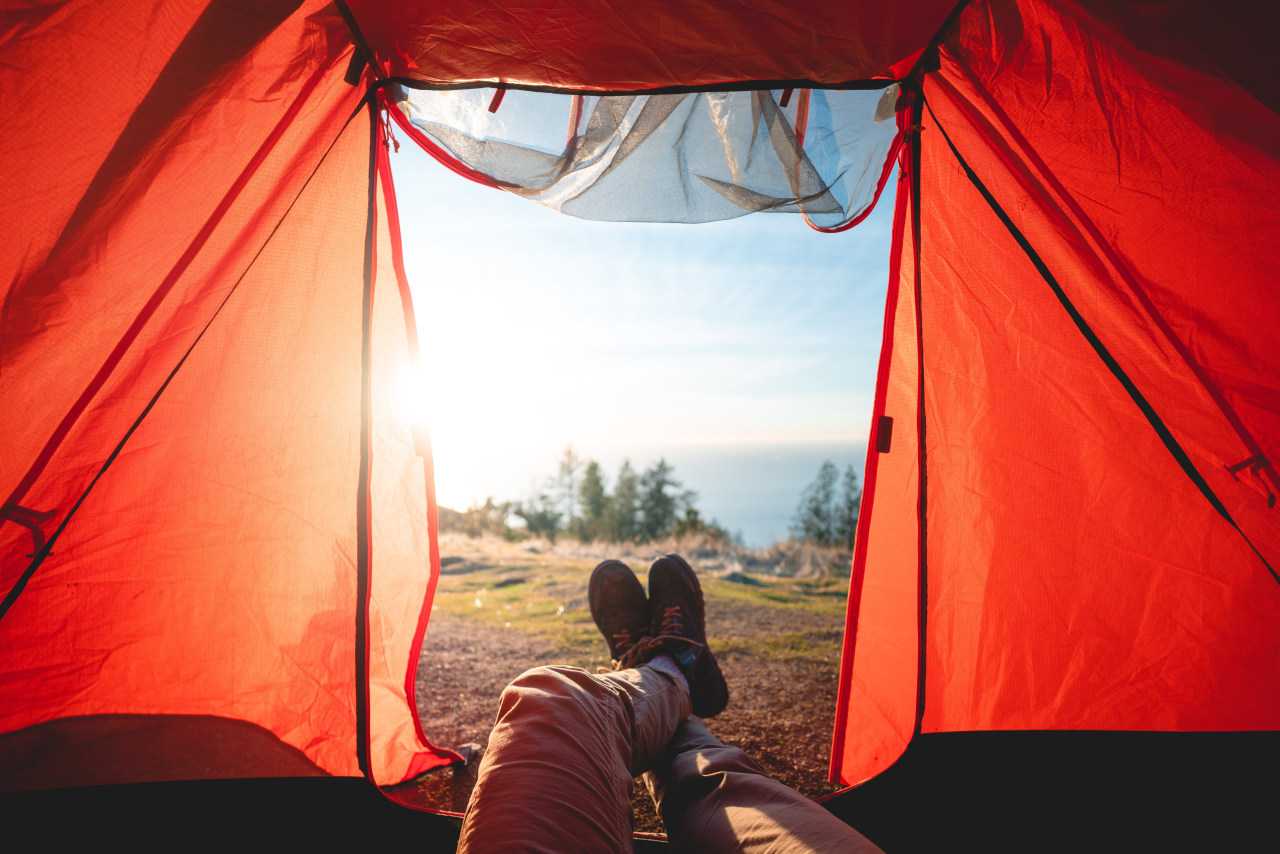Beginners' guide to camping in a tent
Camping doesn’t need to be complicated, but when you’re a beginner it can feel like there’s a lot to learn. Our expert guide to camping in a tent is here to simplify the process.

General beginner camping tips
Keep this advice in mind before taking your first trip in a tent.
-
Begin by borrowing gear. Rather than buy equipment you might only ever use once, ask family and friends to lend you the essentials. If you enjoy your first camping trip, you can invest in the items you need for next time.
-
Learn how to repair a tent. Accidents can happen when you’re away camping, so whether you need to fix a rip or a pole, it’s worth reading up on the best practices.
-
Secure your tent and belongings properly. Here’s our guide to keeping your items safer when camping.
-
Don’t forget the entertainment. Pack a portable charger for your devices and bring books, board games and playing cards.
-
Dry out your tent properly. If you pack gear while it’s wet, mould and mildew can ruin it. Here’s how to put your tent away so it doesn’t get damaged.
What equipment do you need to camp in a tent?
The more often you go camping in a tent, the easier it is to know exactly what you’ll need for each trip. For your first time, it’s a good idea to follow a packing checklist.
Here are the four main essentials to bring camping:
-
A tent (with a groundsheet, flysheet, pegs and guylines)
-
A sleeping bag, pillow and ground mat
-
Appropriate clothing (lots of layers, waterproofs and thick socks)
-
Basic cooking equipment, including a gas stove
If space allows, take too much rather than too little – it will help you figure out what to cut down on for your next holiday.
7 things you need to know before your first tent camping trip
1. Practise setting up your tent at home
If you’ve never camped before, make sure you know how to use your equipment. After borrowing or buying a tent, learn how to pitch it by putting it up in your back garden before your trip. This gives you a chance to figure out any parts of the process you don’t understand while also double-checking the equipment you need is present and correct.
2. Figure out where you want to camp
As a first-time camper, ease in slowly by staying at a certified site with at least the basic amenities – like toilets and showers – instead of out in the wild. Use the filters on our tent camping page to find the facilities you need, from electric hook-ups to free wifi. Each site has its own rules and regulations listed on Pitchup, so check these in advance and you’ll know what to expect.
3. Check the forecast in advance (but plan for all weather conditions regardless)
Bring plenty of layers as temperatures tend to dip at night, especially in cooler climates like parts of Western Europe and North America. Pack sun cream, waterproof clothes and insect repellent too. It’s also worth checking out what to do if you end up camping in bad weather like storms and rain.
4. Prep your meals and menus in advance
Bring some easy-cook meals (think pasta packs and noodles) for your first time camping, not to mention plenty of snacks. You’ll also need to decide the best way to prepare your food. A portable stove fuelled by gas canisters is the easiest option for beginner campers. Check out our full guide to cooking while camping and you’ll soon be creating tasty alfresco feasts.
5. Don’t ever cook inside your tent
Flammable materials and open flames don’t mix well, as our guide to keeping your tent fire-safe explains. Try to pitch up with enough space outside your tent for cooking. Five metres away from other campers is a good amount of room, plus it gives you – and them – a little extra privacy.
6. Think about night-time comfort
A proper sleeping bag, ground mat (or, better yet, an inflatable mattress) and comfy pillows are essentials. Many beginners have never gone camping again after their first time because they were too uncomfortable at night. Make a repeat trip more likely by checking out our guide to getting a good sleep on your outdoor holiday.
7. Respect the great outdoors
As campers – whether beginners or not – it’s our duty to care for nature. Bring plastic bags so you can dispose of your rubbish properly and make sure your campfire is properly stamped out before leaving it unattended. The golden rule is not to leave any trace at all.
Now that you’re prepared to go camping, start searching for tent pitches across the world.







